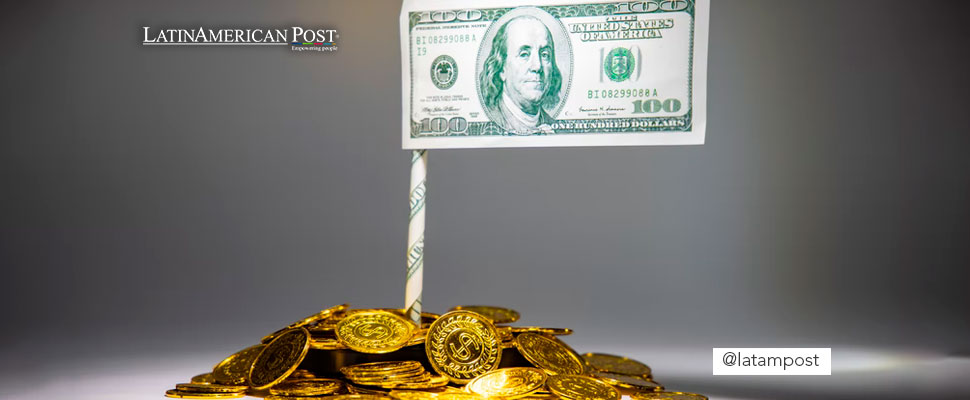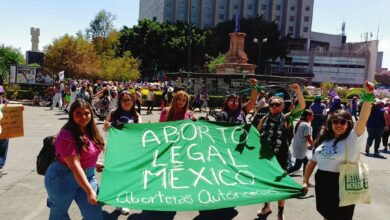Which Countries In Latin America Have Economic Sanctions From The United States?
Economic sanctions have become the US Government's preferred diplomatic pressure mechanism. Find out which Latin American countries are currently suffering these fines.

The United States Department of the Treasury is in charge of protecting the interests of the country’s finances and imposing economic sanctions on other countries. Photo: Unsplash
LatinAmerican Post | María Fernanda Ramírez Ramos
Listen to this article
Leer en español: ¿Qué países de Latinoamérica tienen sanciones económicas de Estados Unidos?
"Democracy supposes non-intervention, democracy is not imposed either with sanctions or by force", is the phrase pronounced by the president of Argentina, Alberto Fernández, at the Summit for Democracy organized by the White House. It is an acid message against Joe Biden, since Cuba, Venezuela, Nicaragua, Bolivia, Honduras, Haiti, El Salvador and Guatemala were not invited to this summit. A common denominator? These are countries with governments that the United States considers undemocratic, a threat to regional stability and security, or violators of Human Rights.
After the victory in World War II, the United States has had a higher power in international relations. This means that it has the ability to impose sanctions on other countries that it considers a threat to its interests. In fact, for some time now, economic sanctions have become the most common way for the country to exert diplomatic pressure on other states or a new form of "war." In addition, the White House may impose sanctions on individuals it considers to be in violation of international law or linked to corrupt terrorist activities.
The United States Department of the Treasury is in charge of protecting the interests of the country's finances and imposing economic sanctions on other countries. According to this entity, its role is to protect national security by placing sanctions on “external threats to the United States, in the identification and concentration in the financial aid networks of threats to national security and in the improvement of the safeguards of our financial systems”.
Today, on International Anti-Corruption Day, Treasury’s OFAC is targeting 15 individuals & entities across several countries in Central America, Africa, & Europe. Today’s actions target perpetrators of corruption and serious human rights abuse.https://t.co/XmUkeCvvAz
— Treasury Department (@USTreasury) December 9, 2021
Some of the most famous sanctions in history are those that have been imposed on Cuba, with an economic embargo that has been going on for more than 60 years. On June 23 of this year, in the UN General Assembly, a vote was held with 184 votes in favor, two against, and three abstentions to demand that the United States withdraw the economic sanctions on Cuba. However, the Congress of this country is the one that has the final decision. In fact, during this year, the US Administration has imposed new selective sanctions against Cuban security officials and entities involved in repressive activities.
You may also be interested in: Opinion: The Hypocrisy Of The Summit For Democracy In The United States
Likewise, the Biden government has maintained pressure on the Nicolás Maduro regime through sanctions of various kinds, which include restrictions on the oil industry and a ban on visas and freezing of assets for Venezuelan officials.
Recently, on November 10, President Biden signed the Law to Strengthen Nicaragua's Adherence to the Conditions for Electoral Reform, better known as the RENACER Law, to increase sanctions against Nicaragua after the elections in which Daniel Ortega was reelected. This law establishes that international financial institutions have greater restrictions to give financial assistance or loans to projects in Nicaragua. It also adds sanctions to promote elections and limit corruption, as well as support independent media of the Nicaraguan regime and monitor the Central American country's relations with Russia. On the other hand, in the Central American region, the Administration also imposed specific sanctions against dozens of officials from El Salvador, Guatemala, and Honduras, for issues related to corruption.
The increase in United States sanctions, which have excluded several countries from the international banking system, have recently led several Central American countries to seek greater alliances with China, especially economic ones. Likewise, several analysts or experts from the United Nations, and heads of state brand American policies as suffocating, criminals and violators of Human Rights. For example, during the pandemic, due to sanctions, it has been difficult for health and humanitarian supplies to enter sanctioned countries.
Pese a los llamados de las autoridades de la ONU ???????? y los reclamos de sus países miembros, Estados Unidos insiste en mantener su política de hostigamiento y sanciones contra #Cuba ???????? e incluso, las recrudece.#EliminaElBloqueo pic.twitter.com/8wn7SmU4Hm
— Cancillería de Cuba (@CubaMINREX) December 5, 2021
On the other hand, despite the fact that Colombia and Mexico do not have restrictions as States, the United States government maintains sanctions against people and companies involved in drug trafficking networks that are mainly found in these two countries, such as the Sinaloa Cartel or the Clan from the Gulf. However, there are also sanctions for people from other countries. This is related to the Kingpin Act, which gives the White House government authority to apply sanctions to drug traffickers and foreign cartels.




